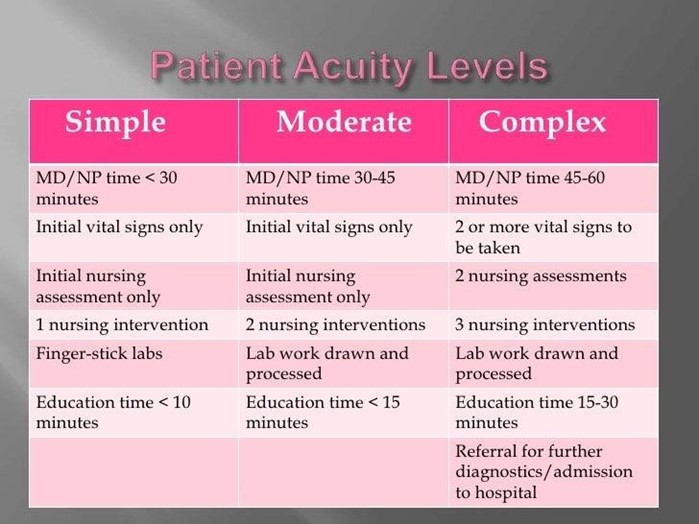In evaluating a staff nurse who demonstrates inconsistent performance, which intervention should the nurse- manager employ?
Evaluate the nurse's performance using standards of practice, citing both strengths and weaknesses with emphasis on ways to improve practice.
Focus on the strengths of the staff nurse; discuss any weaknesses verbally but avoid documenting the nurse's negative behaviors.
Emphasize the nurse's areas of weakness in light of the inconsistent performance observed and discuss how to improve in each of these areas.
Focus on a discussion of how the inconsistency in the staff nurse's performance disrupts the routine of all of the staff members on the unit.
The Correct Answer is A
Choice A Reason: This intervention is the most appropriate and effective for the nurse-manager to employ, as it provides clear and objective feedback to the staff nurse based on professional criteria, and encourages a positive and constructive approach to enhance the nurse's performance and development.
Choice B Reason: This intervention is not advisable, as it may create a false impression of the staff nurse's performance and fail to address the underlying issues or problems. Documenting the nurse's negative behaviors is important for accountability and improvement purposes, and avoiding it may expose the nurse manager to legal or ethical risks.
Choice C Reason: This intervention is not optimal, as it may demoralize or discourage the staff nurse and create a negative or hostile work environment. Focusing only on the areas of weakness may overlook the strengths and potential of the staff nurse, and may not foster a supportive and collaborative relationship between the nurse- manager and the staff nurse.
Choice D Reason: This intervention is not relevant, as it may divert the attention from the staff nurse's performance and shift the blame to external factors. Discussing how the inconsistency in the staff nurse's performance disrupts the routine of all of the staff members on the unit may not help the staff nurse identify and address their own areas of improvement, and may cause resentment or conflict among the team.
Nursing Test Bank
Naxlex Comprehensive Predictor Exams
Related Questions
Correct Answer is C
Explanation
Choice A Reason: Instructing UAPs to transfer all non-ambulatory clients via wheelchairs is not a good intervention, as it may expose the clients and the UAPs to smoke and fire, and cause panic and congestion in the hallways. The charge nurse should follow the RACE protocol (Rescue, Alarm, Contain, Extinguish), which means rescuing only those clients who are in immediate danger, and containing the fire by closing doors and windows.
Choice B Reason: Instructing the nursing staff to evacuate ambulatory clients to the nearest fire exits is not a good intervention, as it may also expose the clients and the staff to smoke and fire, and interfere with the fire
department's efforts. The charge nurse should follow the RACE protocol, which means evacuating only as a last resort, and only after receiving instructions from the fire department.
Choice C Reason: Shutting all doors to client rooms and telling everyone to stay in their rooms until the fire
department arrives is the best intervention, as it follows the RACE protocol, which means containing the fire by closing doors and windows, and extinguishing it if possible with a fire extinguisher. This intervention also helps protect the clients and staff from smoke inhalation and fire spread, and allows the fire department to access and control the fire.
Choice D Reason: Announcing in a calm voice that all visitors should proceed immediately to the first floor via the service elevators is not a good intervention, as it may endanger the visitors and cause more damage. The charge nurse should follow the RACE protocol, which means alarming others by activating the fire alarm system and calling 911. The charge nurse should also instruct visitors not to use elevators during a fire, as they may malfunction or trap them inside.
Correct Answer is A
Explanation
Choice A Reason: This is the correct answer because the acuity level of the clients reflects their complexity and intensity of care needs. The higher the acuity level, the more time and resources are required to provide safe and quality care. The charge nurse should consider the acuity level of the clients when determining the appropriate nurse-to-client ratio and staffing needs.
Choice B Reason: The physicians' plans to perform procedures on the unit is not the most important information for the charge nurse to consider because it does not directly affect the nursing workload or staffing requirements. The charge nurse should coordinate with the physicians and other departments to ensure that the procedures are scheduled and performed safely and efficiently.
Choice C Reason: The number of clients leaving the unit for diagnostic tests is not the most important information for the charge nurse to consider because it does not indicate the level of care that the clients need or receive. The charge nurse should ensure that the clients are prepared and accompanied for their tests and that their care is continued and monitored on their return.
Choice D Reason: The skill level of the personnel staffing the unit is not the most important information for the charge nurse to consider because it does not reflect the actual demand or supply of nursing care. The charge nurse should assign and delegate tasks according to the personnel's skill level and scope of practice but also consider other factors such as client acuity, availability, and preference.

Whether you are a student looking to ace your exams or a practicing nurse seeking to enhance your expertise , our nursing education contents will empower you with the confidence and competence to make a difference in the lives of patients and become a respected leader in the healthcare field.
Visit Naxlex, invest in your future and unlock endless possibilities with our unparalleled nursing education contents today
Report Wrong Answer on the Current Question
Do you disagree with the answer? If yes, what is your expected answer? Explain.
Kindly be descriptive with the issue you are facing.
